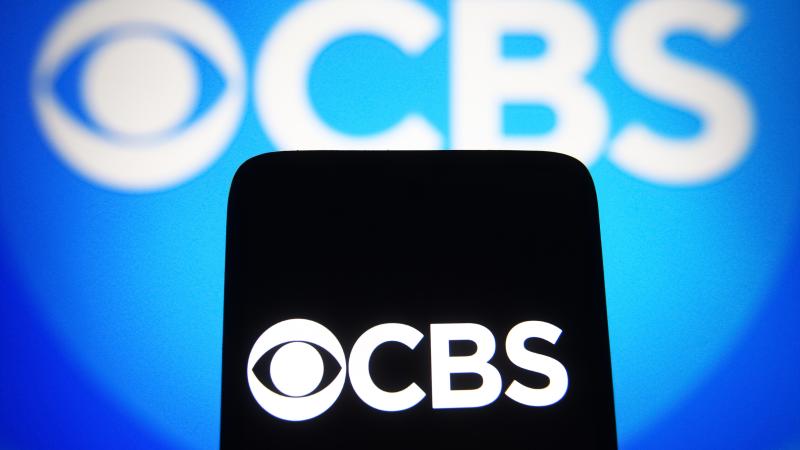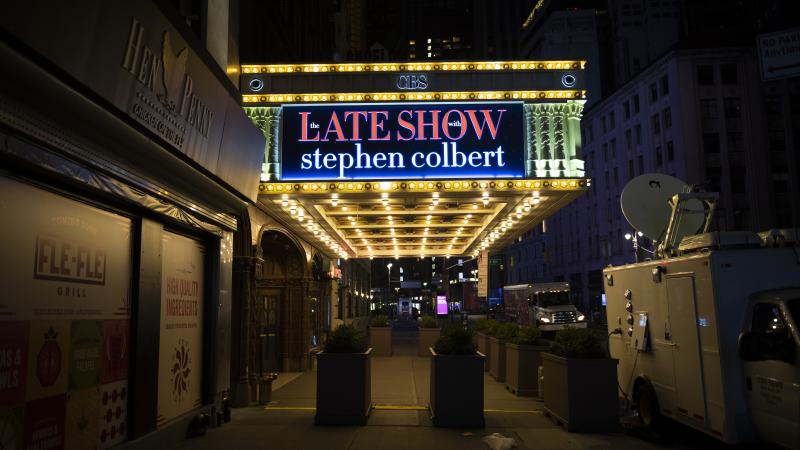Free speech criticism has unlikely source: the press
Journalists continue to express fear that First Amendment left unchecked will pose danger.
When the far-right website Infowars was banned by all the major tech platforms in 2018, mainstream media outlets didn't come to the defense of founder Alex Jones, whom they described as a conspiracy theorist.
Two years later, the same outlets had a similar non-response when Big Tech imposed another media ban — this one on the New York Post, one of America's oldest and most well-established newspapers.
Indeed, in October 2020, Facebook suppressed an accurate Post story on the laptop and business dealings of President Biden's son, Hunter Biden. Twitter then blocked users from posting or reading the story and even locked the Post's primary Twitter account. Both tech giants said they acted to prevent the spread of misinformation.
Prominent media outlets, such as the New York Times, either ignored the Hunter Biden story or cast doubt on its authenticity, although they readily reported on the now-debunked public letter by 51 former intelligence officials portrayed as dismissing the Post's reporting as Russian disinformation.
The media's growing acceptance of Big Tech censorship of the press from 2018 to 2020 highlights an ongoing and intensifying trend: Pillars of the mainstream media establishment who've long championed the First Amendment are now expressing ambivalence, if not hostility, to the free flow of information.
Elon Musk's bid to buy Twitter and take the company private shined an especially strong spotlight on this trend last week.
Washington Post columnist Max Boot, for example, worried that Musk acquiring Twitter would pose an existential threat to democracy. "[Musk] seems to believe that on social media anything goes," he wrote. "For democracy to survive, we need more content moderation, not less."
MSNBC host Katy Tur expressed similar concern about Musk's stated mission to make Twitter more of a haven for free speech, saying there are "real and devastating" and "life and globe-altering consequences" for letting people "lie" and "run wild" on Twitter.
Axios assessed that Musk's "threat level" is that of a "very dangerous beast."
CNBC host Jim Cramer told the Securities and Exchange Commission, which has governmental authority over Musk's takeover bid, via Twitter that Musk is "mutilating" the agency.
CBS correspondent Vladimir Duthiers described Musk as "like a Bond villain now," saying his initial purchase of a major stake in Twitter before his push to buy the entire company was a "very Bond villain move to pull."
Bloomberg Opinion senior columnist Timothy O'Brien published a column arguing Musk's investment in Twitter "could be bad news for free speech."
Musk has described himself as a "free speech absolutist" and lambasted Twitter for censoring content, stating he wants to implement changes to make the platform more amenable to free speech.
"If in doubt, let the speech exist," Musk said recently at the TED2022 conference in Vancouver, British Columbia. "If it's a grey area, I would say let the tweet exist. We want to be very reluctant to delete things and cautious with permanent bans. My strong intuitive sense is that having a public platform that is maximally trusted and broadly inclusive is extremely important to the future of civilization."
Despite Musk's comments, CNN correspondent Brian Stelter has expressed "fear" at the prospect of Musk taking over Twitter and described the billionaire entrepreneur as a "troll."
Several journalists have warned that much of the media establishment and liberal users would leave Twitter if Musk buys Twitter and is able to implement his free-speech vision.
Concern about Musk's Twitter bid was also evident in the entertainment industry, making its way onto NBC's "Saturday Night Live," a satire show that depends on free speech to be successful.
"Elon Musk offered to buy Twitter for over $40 billion so he can loosen its free speech rules," said cast member Michael Che. "That's how badly white guys want to use the 'n-word.'"
This apparent uneasiness with opening up the flow of information felt by those who make their living through the dissemination of information may be an acceleration of a phenomenon that began years ago.
The media was largely MIA in the defense of former CBS reporter (and podcast host on Just the News) Sharyl Attkisson after she alleged the Obama administration's Justice Department spied on her home and electronic devices to determine who was leaking information to her for a string of investigative stories.
Prominent media outlets were similarly silent when House Democrats, led by Rep. Adam Schiff (D-Calif.), subpoenaed and published phone records of Just the News Editor in Chief John Solomon in 2019 as part of their bid to impeach then-President Trump.
"The press corps might also notice that Mr. Schiff's targets include one of their own — Mr. Solomon, who was until recently a columnist at The Hill and whose reporting called attention to Ukraine's involvement in the 2016 election," the Wall Street Journal editorial board wrote at the time. "How is Mr. Solomon's reporting trail relevant to impeachment? The media usually condemn government officials who use surveillance to track and intimidate the media, but here they are cheering Mr. Schiff on."
Today, the media seems to be pushing for Big Tech to arbitrarily shut down so-called "misinformation," even if that means narrowing press freedom.
In 2016, for example, the New York Times editorial board wrote that companies "like Facebook and Google" allow "fake news to be shared nearly instantly with millions of users" and need to block it quicker.
Since then, the Times has repeatedly advocated Big Tech blocking misinformation, including posts from Trump.
Last month, however, the paper's editorial board seemed to backtrack and said people should be able to express "unpopular" positions without being "shut out of public discourse."
But just three weeks later, New York Times podcast host Kara Swisher, a longtime tech reporter, objected to the notion that Twitter even engages in censorship, arguing the platform instead suspends or bans people using "content moderation" — an apparent nod to the idea that platforms should police content.
About half of Americans get at least some of their news from social media platforms, according to the Pew Research Center.
Big Tech efforts to monitor content for misinformation, especially relating to COVID-19 and the 2020 election, have not only been cheered on by key establishment media voices but also aided by the government.
Recently, the Department of Homeland Security put out a "National Terrorism Advisory Bulletin," which discussed how "conspiracy theories," "misleading narratives," and mis- and dis-information can fuel foreign and domestic terrorism.
The bulletin cited "false or misleading narratives regarding unsubstantiated widespread election fraud and COVID-19" online as "key factors contributing to the current heightened threat environment."
In 2018, some conservative members of the media warned that big social media platforms banning Infowars, which just filed for Chapter 11 bankruptcy protection, could lead to a slippery slope of further censorship. Other journalists at mainstream outlets called such fears "overblown."
Whether that was a turning point or not, the establishment media today is expressing a striking indifference to growing restrictions on press freedom.















